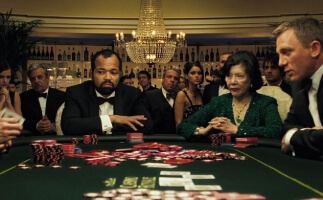You’ve witnessed it many times—the fall from grace of a celebrity, caused by an incorrect slip of the tongue, and often followed by a discussion that escalates into online arguments no one can escape. It happens suddenly on a single, tragic tweet or through a few missteps, and then lingers for weeks, months, even years. What is clear is that the way we communicate and hold each other accountable is rapidly changing. These transformations are intertwined with a deeper examination of two related yet distinct concepts: political correctness and cancel culture.
These are not just buzzwords of the moment; they signify something more profound—highlighting an important distinction between issues of respect, identity, and the boundaries of public discourse. Whenever these two words are mentioned, however, an underlying tension surfaces—about who decides what is acceptable, and the increased tendency to label and punish perceived fools. It is a question of whether freedom is balanced by responsibility.
The Rise of Political Correctness

Political correctness was created as a way to manage language and behaviour to avoid causing unintentional harm. Its origins can be traced to activism and radical academic circles in the late twentieth century; the philosophy aimed to foster a social environment where people can speak freely without harbouring prejudices or biases. It was rooted in straightforward respect.
However, beyond initial distinctions, “political correctness” has always sparked controversy. For some, it represented the global shift towards inclusiveness and empathy; for others, it became a hidden prison where compulsory lifestyle changes encroached on freedom of thought and speech.
In cultural conflicts, it is often used as shorthand, especially to dismiss any issues related to bias or equality. The core of political correctness is not about policing every word or seeking perfection, but about awareness. It is about recognising the power and significance of language. It involves moving beyond dismissive ‘only joking” comments to acknowledge that words can truly hurt someone.
Cancel Culture – A Digital Reckoning

Browse through social networking sites. Such platforms often turn minor mistakes into notable events. They transformed millions of instant critics and judges into consumers. Our Twitter, Instagram, and TikTok worlds influence what our peers say about us.
When it first appeared, cancel culture was mainly about people saying enough, especially those who are marginalised. It allowed them to unite and loudly declare: enough when official channels failed to do so. It was a tool of accountability, a call to recognise harm and demand consequences.
Like political correctness, the culture of cancellation rapidly evolved. Some see it as necessary fairness, while others condemn it as tyranny. It is accused of suppressing growth and redemption, demanding punishment without room for rehabilitation.
Accountability or Overreach – The Blurry Line
There’s a twist that things aren’t always quite straightforward. Not all cancellations are the same. Because there are deep differences between holding someone accountable for repeated hateful behaviour and scrutinising a single, clumsy comment from ‘x’ years ago. Moreover, some actions involve clearly false patterns of victimisation, while others flare up from a single, often misunderstood incident. Overcorrection and accountability are almost always overlooked, happening right amidst everything else. Algorithms tend to fuel outrage, and the simpler narratives of villains and victims.
Who Gets Cancelled and Who Comes Back

Not everyone is treated equally—some are subjected to the storm, issue a statement, and then surface eventually, while others become invisible. Power, class, race, and gender constantly influence the case. Meanwhile, research shows that backlash tends to be harsher for marginalised groups, especially women of colour, and offers fewer chances for redemption. Having influence can sometimes physically transform into becoming the victim. There is no tribunal, no court of appeal, no fairness review. The public decides who falls and who rises again—dictated by the whims of online opinion.
What Comes After the Call-Out
What happens when someone is called out? Is there space for an apology, for genuine growth, and for healing to take place? Or does cancellation become an irreversible sentence, a final verdict that leaves no room for redemption? In reality, responses vary widely. Some people take the opportunity to reflect on their actions, offer sincere apologies, and work hard to rebuild trust with those they have hurt. Others, however, may double down on their original stance, shutting out criticism and using the backlash as a way to reinforce their identity, refusing to acknowledge any fault.
Ideally, a healthier culture would recognize the important differences between ignorance and intentional harm, between a single misstep and a pattern of destructive behaviour. It would encourage accountability while still allowing space for learning and change. The path forward depends on establishing higher standards—not just for what we say, but how we listen and support one another.
Key Takeaways
Political correctness and cancel culture isn’t going away soon. It’s a reminder that we’re still living according to a time when one holds a supremacist idea that distorts or stretches the truth. It’s not just about how or when we have something good to say; political correctness not only silences discourse on certain necessary issues, but also legitimises what sometimes goes overboard with a notion of supremacy.
Because of political correctness, we are not always permitted to interfaith conversation—barriers are erected, silencing valuable reevaluation of various issues and positions in religion. Much current political reporting tends to silence public discourse, often skipping over opportunities for greater understanding through discussion; hence, the opportunity to hear exceptional voices is often forced into silence.
Read Articles

How Movies and Television Portray Gambling and the Culture Behind It
Gambling has always walked the line between thrill and ruin, glamour and grit. For decades, film and television have treated that razor’s edge like a stage—one where risk-takers become heroes or cautionary tales. From back-alley poker dens to neon-lit casinos, pop culture hasn’t just shown us the world of gambling. It’s helped shape how we feel about it.
Read More
The Impact of Digital Trends on Today’s Youth
All teenagers are into social media traps now, something that grows on them, comes their second cup of coffee. Among the most popular names, there are Instagram, TikTok, Snapchat, and daughters behind YouTube. So less to talk about businesses there-aren’t fun places to keep in touch with-young people share themselves, make friends, and indulge in many things that are happening around them. These places in the digital world provide spaces where youth review themselves, share the ups and downs of life, and figure out what the world means.
Read More